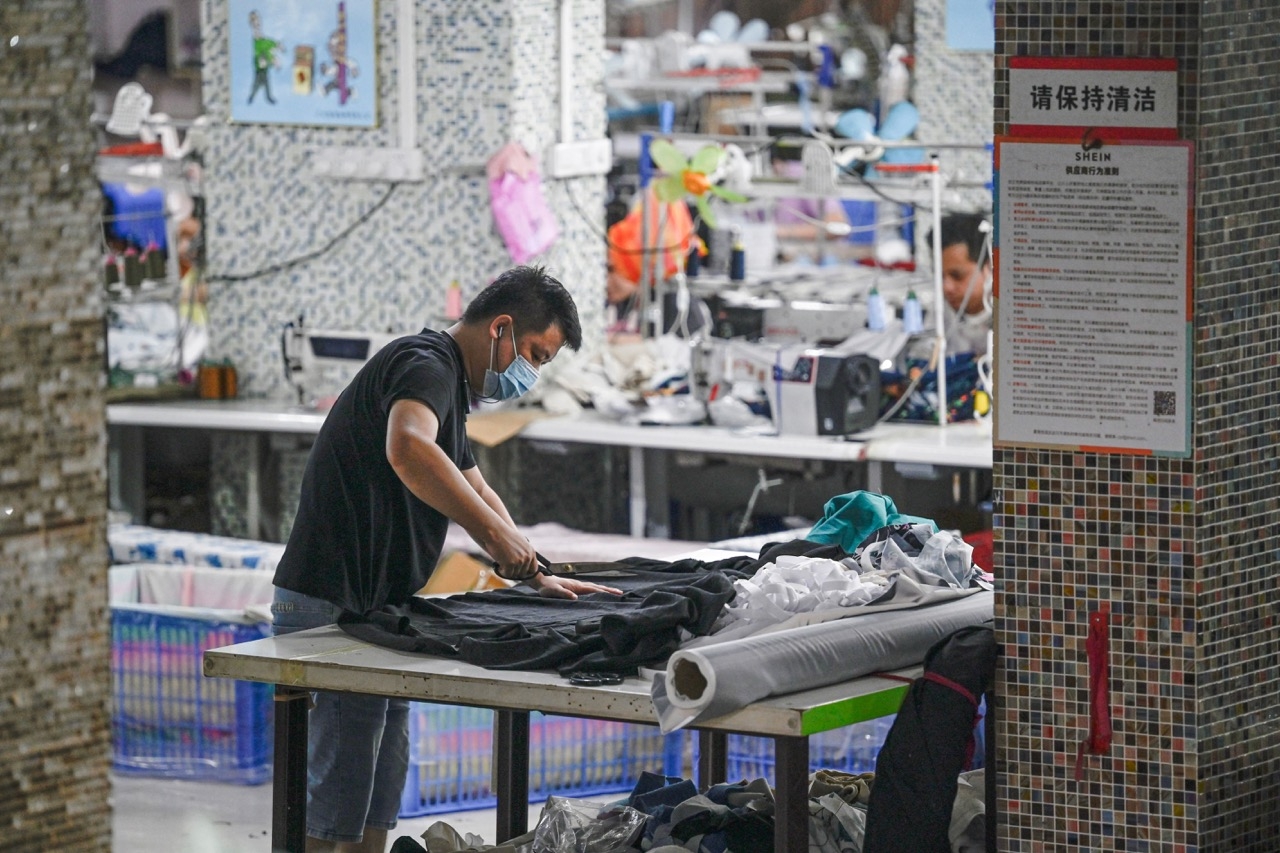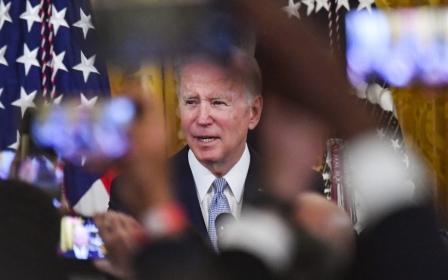#BoycottShein: Why are activists protesting the fashion retailer?

After a frosty reception in the United States and repeated attempts to move forward with listing its shares in the New York Stock Exchange, fast-fashion giant Shein has turned its sights to the UK, sparking campaigns and calls to block the move.
Shein, an ultra-fast-fashion retailer founded in China, filed confidential paperwork with the UK Financial Conduct Authority (FCA) recently in what would be London’s biggest-ever stock market flotation.
But while the initial public offering (IPO) listing would be a major boon for the country’s economy, campaigners and social media users are ramping up their pressure on authorities, highlighting the concerns around labour practices in Shein supply chains.
The company, known for its low-priced trendy fashion and home goods, has come under fire in recent years by labour and environmental activists, who accuse it of unethical business practices that include forced labour, copyright infringement and lax environmental standards, all of which it denies.
Middle East Eye reached out to Shein for comment, but did not receive a response by the time of publication.
New MEE newsletter: Jerusalem Dispatch
Sign up to get the latest insights and analysis on Israel-Palestine, alongside Turkey Unpacked and other MEE newsletters
Among the organisations campaigning about it is the UK-based human rights group Stop Uyghur Genocide, which launched a legal campaign last month to block Shein’s London IPO application, alleging that the Uyghur, a Muslim Turkic minority from China’s northwestern Xinjiang region, are being used in some of Shein’s factories as forced labour.
“Stop Uyghur Genocide has launched a legal campaign and written to the FCA, urging them to refuse any attempt by Shein to list on the LSE,” said Rahima Mahmut, executive director of Stop Uyghur Genocide, in a statement to MEE.
Experts say that carrying out “practical due diligence on companies linked to the Uyghur region is impossible,” she continued.
“Therefore, listing Shein on the LSE would risk consumers unknowingly supporting these atrocities.”
End Forced Labour Fashion, another account focusing on Uyghur advocacy, said on Wednesday that they “hoped” London would push Shein to be “more transparent”, urging their followers to sign a petition from charity Anti-Slavery calling for a law that would make it illegal to import products into the UK that were made with forced labour.
2/3 @UyghurStop launched a legal campaign calling on the UK Financial Conduct Authority to block @SHEIN_Official's application UNLESS it can publicly prove it has ZERO supply chain links to Uyghur forced labour. pic.twitter.com/5SP9BOYZFd
— End Forced Labour Fashion (@forcdlabourfash) July 24, 2024
Sweeping crackdowns in China have turned the once-autonomous Uyghur region into a heavily militarised zone where high-tech surveillance systems were installed and thousands of Uyghurs disappeared.
Under China’s self-described “anti-terrorism” measures, Beijing also set up “internment camps” for Uyghurs, policies which Amnesty International has said amount to crimes against humanity.
UK campaign
Meanwhile, in the UK, lawyers and critics say London should block Shein’s application until it has completed a thorough investigation into the company’s labour practices, environmental impact and tax arrangements.
Earlier this year, the European Parliament approved a new law prohibiting the sale, import and export of goods made using forced labour, and campaigners are hoping the UK will follow with legislation enforcing mandatory social and environmental due diligence.
Mary Portas, the TV retail consultant known as the "Queen of Shops", launched a call for the government to block the proposed London stock market listing, while an online petition by the Say No to Shein campaign has garnered over 40,000 signatures.
10,000.
— Greenpeace UK (@GreenpeaceUK) July 22, 2024
The number of new products on @SHEIN_Official every single day.
This ULTRA-fast fashion relies on exploiting people and planet to protect profit margins.
Now Shein want to expand, bidding to be listed on the London Stock Exchange.
They MUST be blocked.
Agree?
Amnesty International UK also slammed Shein’s move to go public, saying that it would be a “badge of shame” for the London Stock Exchange because of the conglomerate’s “questionable” labour and human rights standards.
“Rewarding Shein’s current methods via a flotation would be a badge of shame for the London Stock Exchange," Dominique Muller, an Amnesty International researcher specialising in the garment industry, said in a press release in June.
The @SHEIN_Official listing on the London Stock Exchange is bad news.
— Labour Behind The Label (@labourlabel) July 17, 2024
Their business model further shackles us to an industry of hyper production and resource use, sidelining human rights and workers rights.
Check out https://t.co/NczvLQVVrA and get involved! https://t.co/LN2I6RDUgU
“No companies who exploit workers, cause environmental harm, and avoid tax should have a place on any exchange,” posted one user on X, formerly Twitter.
Other users questioned if efforts would be better directed towards calls for greater transparency and accountability.
“Do you not think it’s better to list in London than elsewhere as it will stand a better chance of becoming more ESG [environmental, social, and governance] compliant under the risk of greater transparency and reporting into its practices?” posted another.
A few users also dismissed the campaign, as some wondered why other fashion brands are not being targeted equally.
“Overconsumption is a real issue but we cannot compare Shein to other fast-fashion retailers,” said one user in response. “Human right lawyers are begging the UK to block Shein from appearing on the London Stock Exchange.”
Middle East Eye delivers independent and unrivalled coverage and analysis of the Middle East, North Africa and beyond. To learn more about republishing this content and the associated fees, please fill out this form. More about MEE can be found here.




